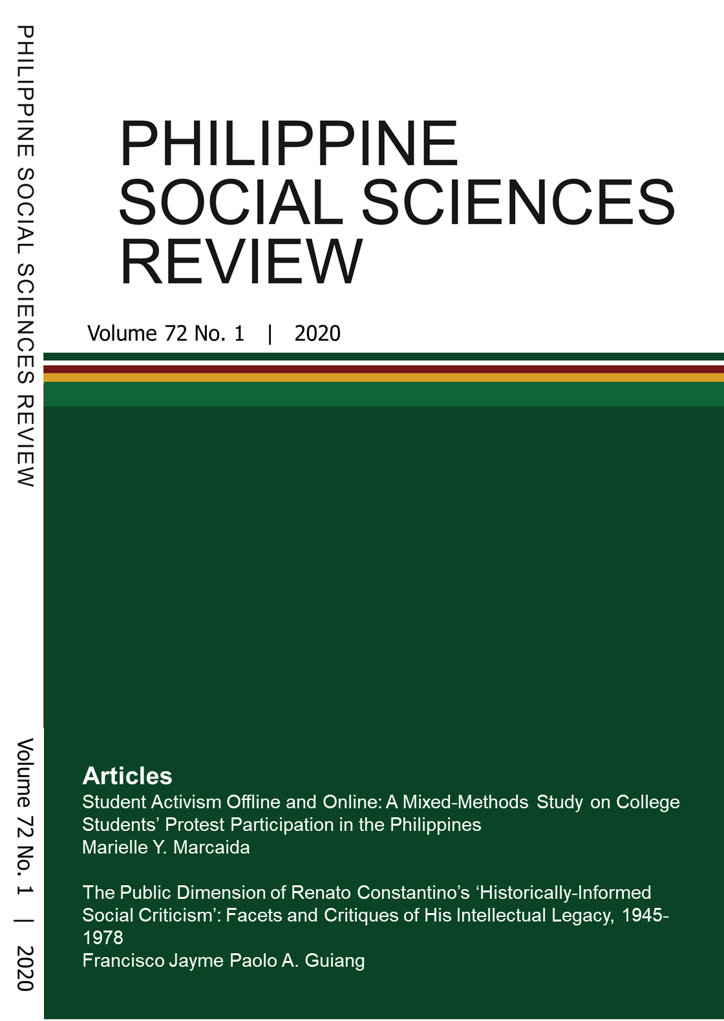Student Activism Offline and Online: A Mixed-Methods Study on College Students’ Protest Participation in the Philippines
Abstract
This study aims to determine the relationship between social media and political activism by answering the question, “How does using social media as a news source affect students’ engagement in activism?” Guided by the uses and gratifications theory, this study argues that using social media as a news source leads to engagement in student activism in both of its two dimensions: digital activism and traditional activism. A case study is designed and situated in the context of the Manilakbayan protests at the University of the Philippines Diliman. Data were derived from surveys and focus group discussions with undergraduate students using mixed-methods approach. Quantitative results show that students who use social media for news have higher chances of engaging in digital activism, which is less labor-intensive than traditional activism. Qualitative findings, however, present that students treat digital activism with skepticism and condescension due to the high standards they hold in their understanding of student activism. This research concludes that the concept of activism should be broadened because such traditional conception makes activism exclusive and defeats its purpose of drawing people to engage in activism.
Published
2021-11-15
How to Cite
MARCAIDA, Marielle Y..
Student Activism Offline and Online: A Mixed-Methods Study on College Students’ Protest Participation in the Philippines.
Philippine Social Sciences Review, [S.l.], nov. 2021.
ISSN 2672-3158.
Available at: <https://journals.upd.edu.ph/index.php/pssr/article/view/8412>. Date accessed: 02 oct. 2025.
Section
Articles


